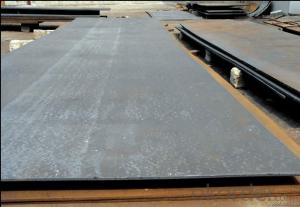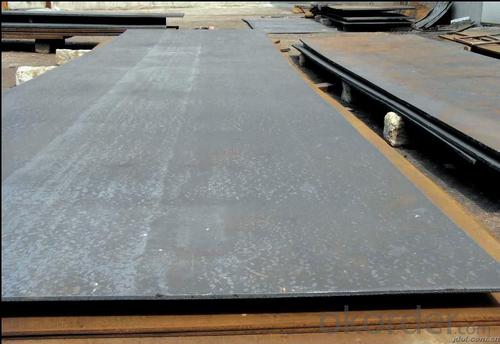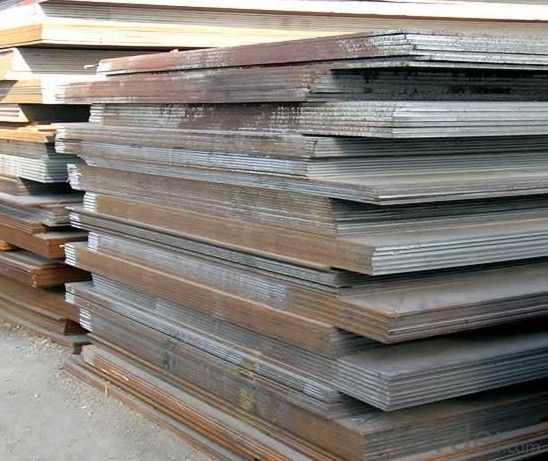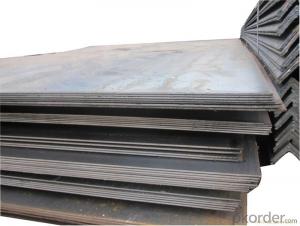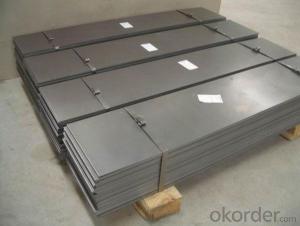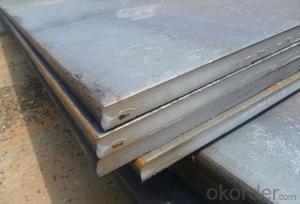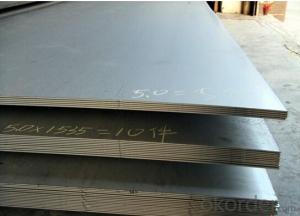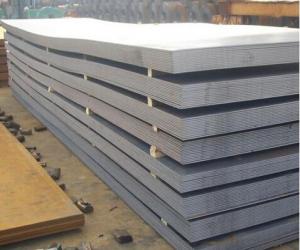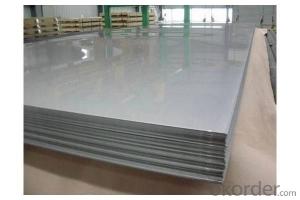Hot Rolled Mild Steel Plate ASTM A283 Carbon Steel Sheet
- Loading Port:
- China main port
- Payment Terms:
- TT OR LC
- Min Order Qty:
- 30 m.t.
- Supply Capability:
- 10000 m.t./month
OKorder Service Pledge
OKorder Financial Service
You Might Also Like
Specification
Product Information
1, Commodity: ASTM A283 Grade C Mild Carbon Steel Plate
2, Standard : AISI,ASTM,BS,DIN,GB,JIS
3, Material Grade: ASTM A36, A283Gr.C ,SS400,SPHC ,Q195/235/345,S235JR
4, Thickness: 1.5-200mm
5, Width: 1000-3000mm
6, Length: 1-12m
7, Surface treatment: Coated or Blasting and painting
8, Quality: MTC will be provided with goods, third part inspection is acceptable, for example
BV,SGS.
Commodity | ASTM A283 Grade C Mild Carbon Steel Plate |
| Standard | AISI,ASTM,BS,DIN,GB,JIS |
| Grade | A36,AH36,A283 Gr.C,SS400,S235J1/S235J2/S235JR, S275J1/S275J2/S275JR,A516 Gr.60/A516 Gr.70,ST37-2 |
| Thickness | 1.5-200mm |
Width | 1000mm 1200mm 1250mm 1500mm 2000mm 2500mm 3000mm |
Length | 1-12m |
MOQ | 1 ton |
Surface | Clean,Coated ,Blasting and painting |
Payment terms | T/T or L/C |
Delivery terms | FOB/CFR/CIF |
Delivery time | Within 10-30 days after received the deposit or as client requirement |
Packing | Standard seaworthy export packing |
Shipping | length below 5.8m with 20' container,length below 11.8 with 40' container,or bulk shipping. |
Supply ability | 5000 ton per month |
Application | Widely used in petrochemistry,chemistry,electricity,boiler and vessel manufacture,and could be made into reactor,heat exchange facility,segregator,sphere vessel,oil tank,liquid gas storage tank, nuclear reactor press shell,turbine and other machines |
Product Show
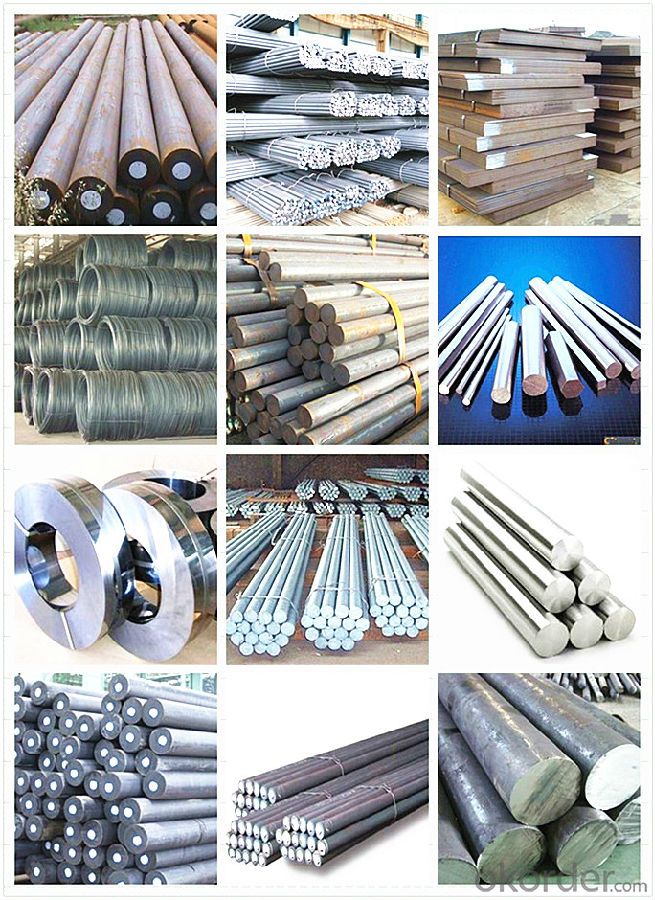
Workshop Show
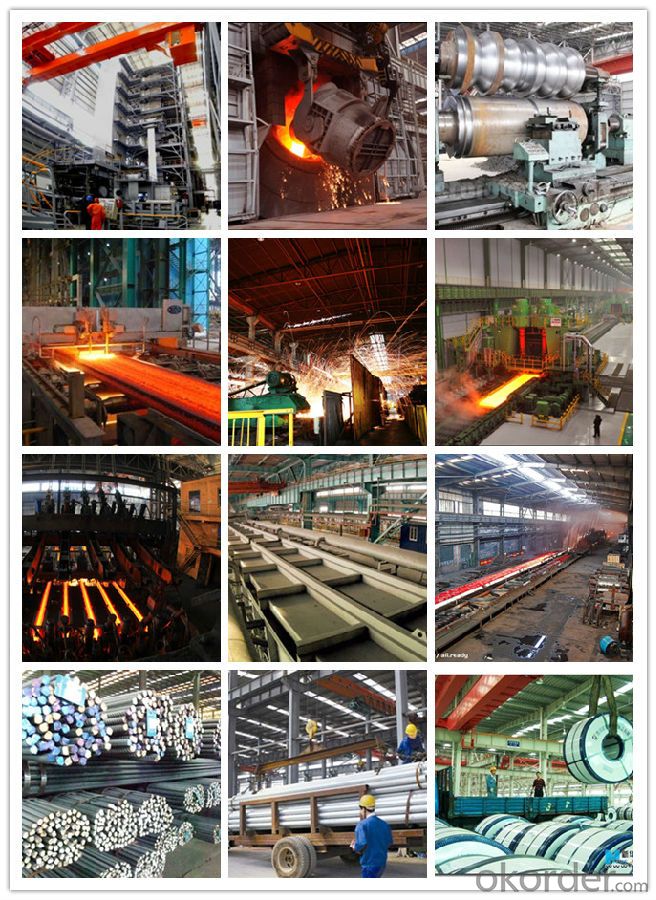
Shipping
1. FedEx/DHL/UPS/TNT for samples, Door-to-Door;
2. By Air or by Sea for batch goods, for FCL; Airport/ Port receiving;
3. Customers specifying freight forwarders or negotiable shipping methods!
Delivery Time: 3-7 days for samples; 5-25 days for batch goods.
Payment Terms
1.Payment: T/T, L/C, Western Union, MoneyGram,PayPal; 30% deposits; 70% balance before delivery.
2.MOQ: 1pcs
3.Warranty : 3 years
4.Package Informations: 1) EXPORT, In 20 feet (GW 25 ton) or 40 feet Container (GW 25 ton)
2)as customer's requirement
Why choose us?
(1) The leading exporter in China special steel industry.
(2) Large stocks for various sizes, fast delivery date.
(3) Good business relationship with China famous factories.
(4) More than 7 years steel exporting experience.
(5) Good after-sales service guarantee.
- Q: What are the specific requirements for special steel used in the nuclear fuel industry?
- The specific requirements for special steel used in the nuclear fuel industry include high resistance to corrosion and radiation, exceptional strength and toughness, low thermal expansion, and the ability to withstand high temperatures. Additionally, the steel must meet stringent quality control standards, have excellent weldability, and maintain its integrity over extended periods of time to ensure the safety and efficiency of nuclear fuel operations.
- Q: How does special steel contribute to the machinability of products?
- Special steel contributes to the machinability of products by offering enhanced properties such as higher strength, improved wear resistance, and increased hardness. These qualities allow for easier cutting, shaping, and forming during the machining process. Additionally, special steel may contain alloying elements that improve its thermal conductivity and reduce the risk of deformation or cracking, leading to better overall machinability.
- Q: Can special steel be used in marine applications?
- Marine applications can indeed utilize special steel. This type of steel, also referred to as marine grade steel, is specifically engineered to endure the demanding conditions found in marine environments. It possesses exceptional qualities, including heightened resistance to corrosion, increased strength, and enhanced durability, which render it suitable for a wide range of marine applications. The construction of ships, offshore structures, and marine equipment commonly employs special steel. Its capacity to withstand corrosion from saltwater, chemicals, and other environmental factors makes it an excellent choice for marine applications. Additionally, special steel finds use in the production of propellers, shafts, and other components that necessitate high tensile strength and fatigue resistance. All in all, special steel proves to be a dependable and efficient material for marine applications due to its unique properties and ability to withstand the challenges presented by the marine environment.
- Q: Can special steel be used in high-speed applications?
- Indeed, special steel can be utilized in high-speed applications without a doubt. Special steel encompasses a variety of steel alloys that have been intentionally developed and engineered to possess enhanced properties like exceptional strength, durability, and resistance to wear and corrosion. These properties render special steel appropriate for a wide range of demanding applications, including those involving high speeds. In high-speed applications, such as aerospace, automotive, machining, and power generation, the material must endure extreme conditions, including elevated temperatures, vibrations, and mechanical stress. Special steel is purposefully designed to meet these requirements and deliver outstanding performance even in the face of such challenging circumstances. For instance, high-speed steel (HSS) is a specific type of special steel formulated to retain its hardness and strength at high temperatures, which makes it ideal for cutting tools like drills, end mills, and saw blades. Similarly, stainless steel variants like martensitic and precipitation-hardening stainless steels are frequently employed in high-speed applications due to their exceptional strength, toughness, and resistance to corrosion. Furthermore, the advancement of cutting-edge manufacturing techniques, such as powder metallurgy, has facilitated the production of special steel with even superior properties, including higher hardness, improved wear resistance, and enhanced dimensional stability. These advancements have further expanded the range of applications for special steel in high-speed industries. To summarize, special steel is a versatile and dependable material that can be effectively utilized in high-speed applications. Its unique properties make it suitable for withstanding demanding conditions and delivering excellent performance, which is why it is the preferred choice for industries that require materials capable of enduring high speeds, temperatures, and mechanical stress.
- Q: Can special steel be used in the manufacturing of cutting-edge technology products?
- Absolutely, cutting-edge technology products can certainly benefit from the use of special steel. Renowned for its exceptional strength, durability, and resistance to corrosion, special steel proves itself as an ideal material for various applications within the technology sector. Take, for instance, the manufacturing of smartphones, where special steel can be employed for the casing, ensuring exceptional protection against impact and scratches, all while maintaining a sleek and contemporary design. Furthermore, precision components for advanced machinery, such as robotics or medical devices, can be flawlessly crafted using special steel, given its imperative attributes of high strength and unrivaled reliability. In summary, special steel boasts myriad advantages, rendering it an optimal choice for the production of cutting-edge technology products.
- Q: How are aluminum alloys used in the automotive industry?
- Aluminum alloys are widely used in the automotive industry due to their lightweight yet durable properties. They are used in the construction of car bodies, engine components, wheels, suspension systems, and other critical parts. By using aluminum alloys, vehicles can achieve better fuel efficiency, improved performance, and reduced emissions. Additionally, these alloys offer better corrosion resistance, which enhances the lifespan and overall quality of automobiles.
- Q: Is special steel suitable for medical equipment manufacturing?
- Yes, special steel is suitable for medical equipment manufacturing. Special steel possesses properties such as high strength, corrosion resistance, and biocompatibility, making it an ideal choice for producing medical devices and equipment. Its ability to withstand harsh sterilization processes and maintain structural integrity is crucial in the medical field, ensuring the safety and reliability of the equipment.
- Q: What are the applications of special steel in the renewable energy sector?
- The development and advancement of various renewable energy technologies heavily rely on special steel. Specifically, in the renewable energy sector, special steel is crucial for the manufacturing of wind turbines. Wind turbine components, including towers, generator frames, rotor hubs, and bearings, require high-strength and corrosion-resistant steel to withstand harsh operating conditions such as strong winds and exposure to moisture. The use of special steel ensures the longevity and reliability of wind turbines, thus promoting the growth of wind energy. Furthermore, special steel is extensively employed in the construction of solar power plants. Steel with excellent structural integrity, durability, and resistance to environmental degradation is necessary for solar panel frames, mounting structures, and support systems. Special steel provides these desired qualities, ensuring the stability and optimal performance of solar installations. In addition, special steel finds applications in the production of components for hydroelectric power plants. The construction of turbines, penstocks, and other hydraulic equipment requires steel with high tensile strength and resistance to corrosion caused by water and sediments. Special steel alloys possess these characteristics, making them ideal for hydroelectric power generation. Moreover, special steel is utilized in the manufacture of energy storage systems, such as batteries and fuel cells. These systems demand steel with outstanding conductivity, corrosion resistance, and mechanical strength to ensure efficient and reliable energy storage. Special steel alloys can meet these requirements, making them suitable for use in renewable energy storage technologies. In conclusion, special steel plays a vital role in the renewable energy sector by providing the necessary properties for the manufacturing of wind turbines, solar power plants, hydroelectric power plants, and energy storage systems. Its high-strength, corrosion-resistant, and durable characteristics enable the development of efficient and reliable renewable energy technologies, thereby contributing to the sustainable energy transition.
- Q: How does the microstructure of special steel affect its performance?
- The microstructure of special steel plays a crucial role in determining its performance. It influences various mechanical properties such as strength, hardness, toughness, and wear resistance. By controlling the arrangement and size of the steel's grains, as well as the presence of any additional phases, manufacturers can tailor the material to meet specific requirements. For instance, a finer grain structure can enhance strength and hardness, while a uniform distribution of carbides can improve wear resistance. Consequently, optimizing the microstructure allows special steel to exhibit superior performance characteristics in specific applications.
- Q: Can special steel be used in the manufacturing of consumer goods?
- Indeed, the utilization of special steel in the production of consumer goods is possible. Special steel refers to a specific type of steel that has been engineered to possess exceptional properties, such as increased strength, corrosion resistance, heat resistance, or wear resistance. These enhanced characteristics render it suitable for a broad range of applications, including the manufacturing of consumer goods. Consumer goods encompass a diverse array of products, ranging from kitchen appliances and electronics to automobiles, tools, and furniture. Special steel can be employed in various components and parts of these goods to enhance their performance and durability. For instance, in kitchen appliances, special steel can be utilized to fabricate blades, heating elements, or cooking surfaces, thereby improving cutting efficiency, heat distribution, and resistance to corrosion. In electronics, special steel can be employed in the production of casings, connectors, or springs to ensure durability, conductivity, and resistance to temperature fluctuations. Furthermore, special steel can also find application in the manufacturing of consumer goods that demand high precision and reliability. In the automotive industry, for example, special steel can be used for engine components, chassis, or safety features, providing superior strength, impact resistance, and structural integrity. Likewise, in the production of tools and equipment, special steel can be employed to manufacture drill bits, cutting tools, or machine components, guaranteeing longevity, precision, and optimal performance. In conclusion, special steel offers distinct advantages over conventional steel due to its unique properties, making it an ideal material choice for the production of consumer goods. Its enhanced strength, corrosion resistance, heat resistance, or wear resistance characteristics can significantly enhance the performance, durability, and reliability of consumer products, thereby meeting the demands and expectations of consumers.
Send your message to us
Hot Rolled Mild Steel Plate ASTM A283 Carbon Steel Sheet
- Loading Port:
- China main port
- Payment Terms:
- TT OR LC
- Min Order Qty:
- 30 m.t.
- Supply Capability:
- 10000 m.t./month
OKorder Service Pledge
OKorder Financial Service
Similar products
Hot products
Hot Searches
Related keywords
